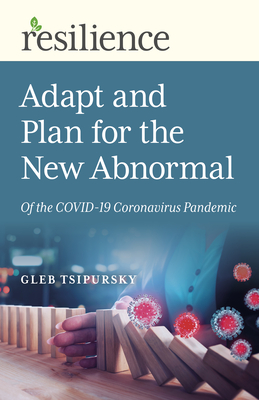
The Premonition: A Pandemic Story
Book Description
A deadly virus is unleashed, but a few visionaries see it coming. In "The Premonition: A Pandemic Story," Michael Lewis unveils the untold saga of doctors, scientists, and public health officials who grapple with a dire crisis. As chaos looms, alliances are forged and broken, revealing the fragility of the systems meant to protect us. Against a backdrop of misinformation and bureaucratic red tape, bravery and innovation emerge as the last line of defense. Can they rise to the challenge before it's too late, or are we doomed to repeat history’s mistakes?
Quick Book Summary
"The Premonition: A Pandemic Story" by Michael Lewis explores the hidden world of American public health through the lens of a deadly pandemic. Lewis follows an ensemble cast of doctors, scientists, and officials—outsiders inside the system—who recognized the impending threat long before it broke into public view. Faced with institutional inertia, political denial, and a fractured response, these visionaries raced to push innovative solutions and sound the alarm. Their journey exposes how a combination of bureaucratic complexity, poor leadership, and inadequate preparation left the United States vulnerable. Yet, amid confusion and conflict, Lewis also celebrates courage, creativity, and the power of individuals to make a difference. The book delivers a compelling narrative about the sometimes invisible, often ignored, yet crucial defenders of public health.
Summary of Key Ideas
Table of Contents
The Limits and Failures of Institutions
Michael Lewis begins by tracing the backgrounds of key figures who foresaw the catastrophic potential of emerging infectious diseases. Among these are Charity Dean, Joe DeRisi, and Carter Mecher, professionals from diverse medical and scientific backgrounds who sensed that the existing public health infrastructure was ill-prepared for a novel outbreak. Their early warnings underscore the persistent risks and the challenge of grappling with invisible threats in a society that often values quick solutions over preventive measures.
Visionary Individuals in Crisis
As the novel coronavirus emerges, these visionaries encounter entrenched institutional obstacles. The Centers for Disease Control and other government bodies are portrayed as bureaucratic, slow-moving, and risk-averse, more focused on process than rapid innovation. Lewis details how internal politics, poor communication, and fragmented responsibilities hindered decisive early action, showing that structural weaknesses far predate the crisis themselves.
The Challenge of Bureaucracy and Red Tape
The narrative also delves into the tension between science and politics. As public health experts scramble to control misinformation and promote evidence-based guidance, they are repeatedly confronted by political leaders who downplay risks and resist inconvenient truths. Lewis highlights the consequences of dismissing scientific voices and shows how misinformation amplifies confusion about the pandemic's real dangers and necessary interventions.
Science Versus Politics and Misinformation
Despite systemic limitations, certain individuals find ways to act outside official channels, forming informal networks and alliances. Through unconventional thinking and relentless advocacy, these outsiders implement creative solutions—crafting new protocols, leveraging data modeling, and mobilizing local responses. Their stories are a testament to the importance of innovation, collaboration, and leadership when traditional systems falter.
Innovation and Leadership in Times of Uncertainty
Ultimately, "The Premonition" serves as both a warning and a tribute. It exposes how institutional fragility and leadership failures can leave societies vulnerable, but also how dedicated, forward-thinking individuals can drive meaningful change even in the most daunting circumstances. Lewis invites readers to reconsider the value of public health, resilience, and the persistent necessity to heed warnings before disaster strikes.
Download This Summary
Get a free PDF of this summary instantly — no email required.





